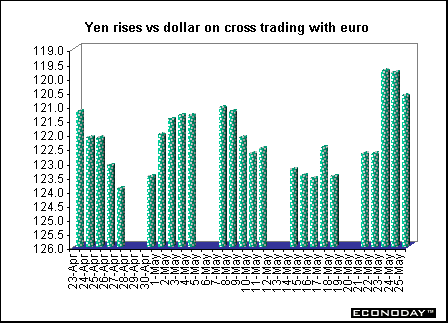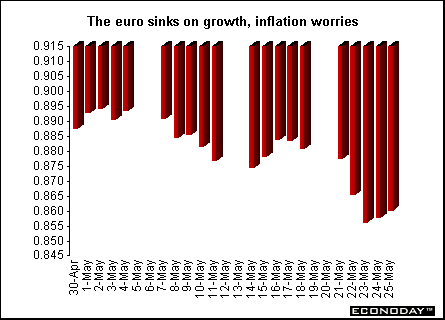
Currencies
Intervention fears surfaced again in the currency markets for both the yen (because it was increasing in value) and the euro (because it was declining precipitously against the dollar). Haruhiko Kuroda, vice minister of finance for international affairs, said that Japan might step into currency markets to stem the yen's rise. He said that the yen to dollar rate was showing inappropriate movement and it would be closely watched. A stronger yen would be bad news for Japan; growth slows as exports slump, forcing companies to cut production. A stronger yen makes Japanese goods more expensive abroad.

The yen's gains were triggered by the euro's sudden decline. The euro fell to a six month low against the dollar on concerns about slowing growth and accelerating inflation in Germany and France. Japan's currency rose against most other major currencies as its record surge against the euro triggered demand to buy yen.
The euro fell on reports showing German and French growth was slower than expected while inflation rose more than expected. This will probably keep the ECB from trying to stimulate the economy in the foreseeable future. Analysts say rising pessimism at German companies and improving sentiment among their U.S. counterparts suggest that the euro's potential to rebound from a six month low against the dollar is limited. The euro sank 2.5 percent against the dollar. The euro's decline followed the lower than expected Ifo reading of 92.5 for April, from 93.9 in March. Meantime, the U.S. NAPM index rose in April to 43.2, from 43.1 a month earlier.



Introduction • Global Stock Market Indexes • Recap of Global Markets • Currencies • Indicator Scoreboard

The Bottom Line • Looking Ahead
|